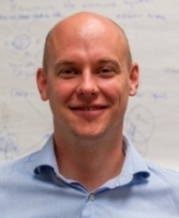
 Print - PDF Mobile - PDF
Print - PDF Mobile - PDF

New class of Cancer Therapeutics, RAL GTPase Inhibitors show potential to Inhibit Tumor Growth and Metastasis in KRAS Mutant Cancers that Represent 30% of All Cancers
 Dr. Jakub Staszak-Jirkovsky
Dr. Jakub Staszak-Jirkovsky
Co-Founder & CEO
Machavert Pharmaceuticals
www.machavert.com
Interview conducted by:
Lynn Fosse, Senior Editor
CEOCFO Magazine
Published – February 17, 2020
CEOCFO: Dr. Staszak-Jirkovsky, first thing I see on your site is the tagline “Revolution in Healing.” How is Machavert heading towards that goal?
Dr. Staszak-Jirkovsky: We are developing a new class of cancer therapeutics, RAL GTPase inhibitors that have the potential to drug KRAS mutant cancers, representing 30% of all cancers. KRAS mutant cancers are caused by mutations in the KRAS oncogene that elevate KRAS signaling, resulting in increased cancer cell growth and tumorigenesis. Our approach will be impactful because it disrupts the KRAS signal to RAL GTPases (RAL), and this directly inhibits tumor growth and tumor metastasis.
CEOCFO: What is the science behind it?
Dr. Staszak-Jirkovsky: RAL inhibitors were discovered and published in Nature by a research team led by Dr. Dan Theoderescu while he served as the Director of the University of Colorado Comprehensive Cancer Center. Dr. Theodorescu is now the Director of the Samuel Oshin Comprehensive Cancer Center at Cedars Sinai Medical Center in Los Angeles, and he serves on the Machavert Science Advisory Board. Machavert has received an exclusive license to the RAL inhibitor portfolio from the University of Colorado. In cancer, RAL reacts to mutant KRAS by transmitting multiple signals that result in increased tumor cell growth and tumor metastasis. Machavert’s RAL inhibitors have the potential to stop this process and effectively treat patients.
CEOCFO: What is the interaction?
Dr. Staszak-Jirkovsky: Machavert’s RAL inhibitors are small molecules that bind to a special site within RAL, called an allosteric binding site. Once this interaction occurs, Ral becomes inactivated resulting in tumor cell growth inhibition and metastasis inhibition. RAL is integral to KRAS signaling, and there are several mutant forms of KRAS that are directly responsible for driving cancer. RAL is most active in cancers that have at least two forms of KRAS mutations, the G12C and G12V KRAS mutations that cause over 50% of all KRAS mutant non-small cell lung cancer (NSCLC), pancreatic cancer, and colon cancer.
CEOCFO: You licensed a technology the end of August, what have you done with it since then and what will the strategy be once you move forward?
Dr. Staszak-Jirkovsky: We have refocused 100% our drug development efforts on our RAL inhibitor program. We have successfully shown in animal efficacy experiments that our lead molecule, MP2018 is efficacious in NSCLC and pancreatic cancer models and we are continuing our effort down a well-planed drug development path with MP2018 for these two indications.
CEOCFO: Why is this approach better than what you had been working on before?
Dr. Staszak-Jirkovsky: KRAS mutant cancer has been at the forefront of cancer drug development based on recent success in the competitive field in developing G12C mutant KRAS cancer therapeutics. We saw a large competitive advantage to our RAL inhibitor program because we potentially could use a single compound to effectively target multiple forms of KRAS mutant cancer across multiple therapeutic areas of cancer, including lung, pancreatic, and colon. The successful development of our RAL inhibitors undoubtedly would be impactful in impacting large numbers of patients.
CEOCFO: What did you learn about it in the last year or so that you have been working in this area?
Dr. Staszak-Jirkovsky: We have screened multiple RAL inhibitor drug candidates in cell line and animals models of human cancer and achieved efficacy in lung cancer and pancreatic cancer models. This effort allowed us to select our lead candidate, MP2018 for further development.
CEOCFO: What is the plan for the next year or so at Machavert and how will you be advancing the research?
Dr. Staszak-Jirkovsky: MP2018 will be further tested in animals for anti-tumor efficacy across different tumor types to model what patients will be most responsive to our drug candidate in clinical trials. MP2018 will also be validated in animal models for the ability to stop metastases, and successfully stopping metastases will be a unique advantage to our compound compared to other competitive drug approaches. MP2018 will be advanced to preliminary toxicology testing to prepare it for the FDA-IND approval process for entry into human clinical trials.
CEOCFO: Are you funded for the next steps?
Dr. Staszak-Jirkovsky: We always are looking for more funding, and we are now very actively looking for more funding. For now, we have enough money to do all the key experiments to finish the next step which is to preclinically assess the therapeutic potential of the RAL inhibitors.
CEOCFO: How do you spend your time, day-to-day, as CEO?
Dr. Staszak-Jirkovsky: I am involved in science, and I am in the lab every day as well. I do not necessarily do everything, but I am here in the office and the lab and I talk to the investors and I talk to everybody. I do networking and go to conferences and for whatever comes, I have to be there.
CEOCFO: How does Machavert standout at a conference where there are so many new ideas?
Dr. Staszak-Jirkovsky: One of the reasons why I came to the conclusion of tackling KRAS cancer was that it makes you stand out. When we talk to people, you can see that everyone is getting excited. We have the potential of tackling this type of cancer, and everyone is like “wow this is interesting.” This is one of the ways you find out what is of interest. We select the right direction and that makes you stand out by doing something really unique. We are the only company that targets RAL and we have a new way to tackle KRAS cancer to treat an unmet patient need.
CEOCFO: How do you deal with some of the frustration with the time it takes in having something that has such potential but takes a long time to move forward?
Dr. Staszak-Jirkovsky: I do not really think about it. All I am thinking about is if we are successful, it is going to be something really great and good for many people and I would feel satisfied. At least I am taking a crack at something that really matters and that is all I need to know. As long as I have this I am happy and I can sit here and I will keep working on it.
CEOCFO: Are there newer technologies that you are able to take advantage of when you are testing?
Dr. Staszak-Jirkovsky: The scientific field, especially in cancer and I am sure other diseases as well, is advancing every day and you just need to keep looking out and work with the best people. That is why we have a science advisory board. That is also why I have my Chief Science Officer who is an expert in cancer drug development. You just have to read papers all the time and always be up to date and use the newest approaches, the newest knowledge. Even if you do that every day, you still need to learn something new and you need to adapt. Using the best advisors that you can and talking to experts and getting feedback are very important.
CEOCFO: What have you learned over time about working with new drugs and compounds?
Dr. Staszak-Jirkovsky: I just realized even more how important it is to cooperate with others and to keep your eyes open and be open-minded. You have to keep communicating with everyone else and if you do not do it, I do not think you would get very far. That is probably one of the most important things I have learned.
CEOCFO: Why pay attention to Machavert Pharmaceuticals? Why is the company so important?
Dr. Staszak-Jirkovsky: We target the KRAS cancer that comprises 30% of all cancer and for which there are only limited effective treatment options for patients. We are developing unique First-in-Class therapeutics based on RAL inhibition, which will offer a new way to tackle many cancers, and this is very exciting. If we make it, it is going to be huge so that is why you should pay attention to us.
Machavert Pharmaceuticals, RAL GTPase Inhibitors, KRAS Mutant Cancers Treatment, Dr. Jakub Staszak-Jirkovsky, New class of Cancer Therapeutics, RAL GTPase Inhibitors show potential to Inhibit Tumor Growth and Metastasis in KRAS Mutant Cancers that Represent 30% of All Cancers, CEO Interviews 2019, Drug Development Companies, phospholipids in cancer treatment, tumor selective drug targeting, cancer, autoimmune diseases, immune modulation, tumor selective drug delivery, anticancer, immune enhancing drug delivery, inhibiting cancer cell growth, selectively targeting cancer cells, harnessing the immune system, lipid cancer therapy, lipid metabolism cancer therapy, lipid raft cancer therapy, lipid membrane cancer therapy, phospholipid autoimmune, Machavert Pharmaceuticals Press Releases, News, linkedin












 Print -
Print -
 Dr. Jakub Staszak-
Dr. Jakub Staszak-